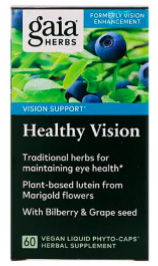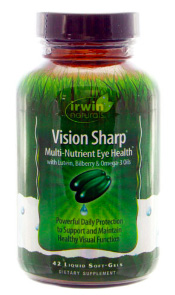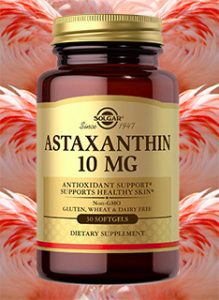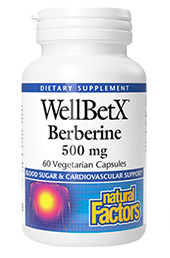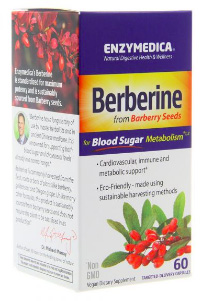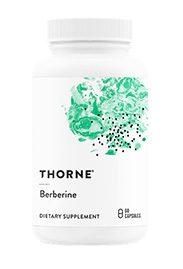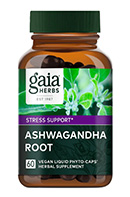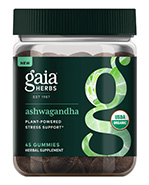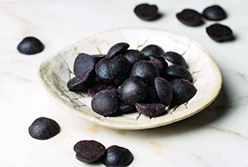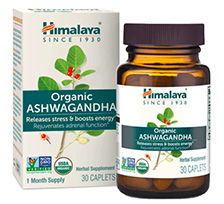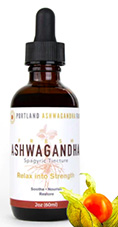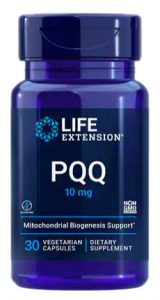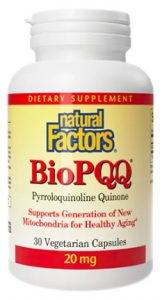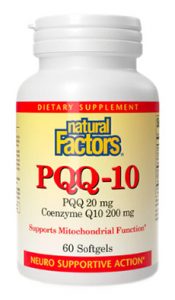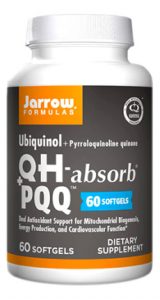Moringa: A Superfood with Well-Deserved Hype

Moringa: A Superfood with Well-Deserved Hype
If there were an entry in the encyclopedia for Superfood, it would undoubtedly have a photo of the subject of this newsletter. Moringa has been trending for several years and its hype is well-deserved. Generally lumped into the Green Foods category along with spirulina and barley grass, moringa has decidedly more “going on” than its fellows in that category.What Is It?
 Moringa oleifera is an evergreen plant native to India but also found widely across Africa and Asia in tropical and subtropical climates. It has been cultivated for centuries for its medicinal properties. Generally the leaves are used, although the bark, roots, seeds, fruit, flowers, and pods are all edible. It has many nicknames, including “drumstick tree” and “never-die,” alluding to its many properties as well as its evergreen leaves. The tree is able to survive with very little water and so is important in drought-stricken areas as a source of food for malnourished/famine-struck populations. It is planted by farmers to restore soils, filter water, and help replenish nutrients in soil. In India, it has been integral to the Ayurvedic medical system for millenia. In Asia it has been used for ages to support heart, blood, liver, respiratory, and skin health.
Moringa oleifera is an evergreen plant native to India but also found widely across Africa and Asia in tropical and subtropical climates. It has been cultivated for centuries for its medicinal properties. Generally the leaves are used, although the bark, roots, seeds, fruit, flowers, and pods are all edible. It has many nicknames, including “drumstick tree” and “never-die,” alluding to its many properties as well as its evergreen leaves. The tree is able to survive with very little water and so is important in drought-stricken areas as a source of food for malnourished/famine-struck populations. It is planted by farmers to restore soils, filter water, and help replenish nutrients in soil. In India, it has been integral to the Ayurvedic medical system for millenia. In Asia it has been used for ages to support heart, blood, liver, respiratory, and skin health.
Nutritional Aspects
 The leaves of moringa are the most nutrient-dense. They contain all of the essential amino acids, making them a very protein-rich food source. They are also full of vitamins, minerals, and phyto-nutrients. Antioxidants include quercetin, rutin, and kaempferol, all powerful compounds. Research into moringa shows that some of these substances have broad-ranging effects: antidiabetic, antitumor, anti-ulcer, anti-epileptic, and antispasmodic.
The leaves of moringa are the most nutrient-dense. They contain all of the essential amino acids, making them a very protein-rich food source. They are also full of vitamins, minerals, and phyto-nutrients. Antioxidants include quercetin, rutin, and kaempferol, all powerful compounds. Research into moringa shows that some of these substances have broad-ranging effects: antidiabetic, antitumor, anti-ulcer, anti-epileptic, and antispasmodic.
Broad-Ranging Effects
Moringa’s antibacterial and antifungal effects help with maintaining a healthy gut microbiome, also supporting healthy digestion and assimilation of nutrients. It has been shown to possess marked anti-inflammatory activity, suppressing inflammatory cytokines and other markers. Moringa’s high levels of polyphenols may support liver function and detoxification pathways. A study in Food and Chemical Toxicology found moringa to reverse oxidation in the liver and reduce fibrosis and liver damage. Research has shown moringa’s roots, leaves, and fruit all to be highly anti-inflammatory. They contain substances that inhibit the production of inflammatory cytokines. The Asian Pacific Journal of Cancer Prevention reported that moringa leaf extract suppressed growth of cancer cells and induced cell death in some cancers. The high antioxidant profile content of moringa may help with prevention of neuron oxidation and support brain health. The Journal of Neurosciences in Rural Practice published a study suggesting that moringa has potential as a treatment for Alzheimer’s disease. Through its content of amino acids and other nutrients, moringa may stabilize neurotransmitters in the brain and thereby improve mood. Moringa is also under investigation for its role in blood-sugar health, as it contains compounds that hinder the ability to raise blood-sugar. This may be of importance in people with pre-diabetic conditions.What We Have For You
Evergreen Nutrition carries several moringa products. Organic India has an organic, non-GMO, vegan capsule with a 700 mg dose. Irwin Naturals offers a 1,000 mg moringa softgel in a blend of healthy oils for absorption. From Host Defense comes Greens, a powder featuring organic moringa with lion’s mane mushroom and nettle, making this an extraordinarily antioxidant/mineral-rich and nutritious superfood blend.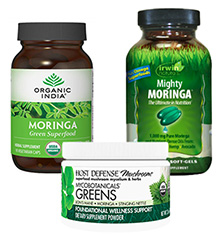
Zembrin for Mood & Wellbeing
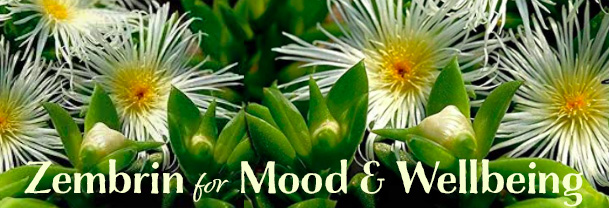
Zembrin for Mood & Wellbeing
The term “panacea” refers to a substance which is good for all (ailments/conditions). Throughout history, some well-deserving plants/herbs have acquired this label. A relative newcomer to the west, but used traditionally in its native South Africa for centuries, kanna was/is seen as a panacea by the indigenous tribes.What is Zembrin?
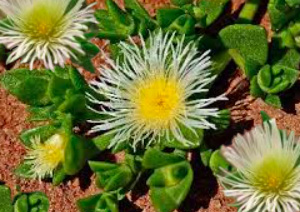 Sceletium tortuosum, or kanna, is a succulent plant found in dry, arid regions of South Africa. Historically the plant was used by the native San and Khoikhoi tribes to curb their thirst and appetite when going into battle, to fight fatigue, as a euphoric, and for diverse healing and spiritual applications. It has been used for abdominal pains, toothache, a painkiller for headache, and for the respiratory tract. Traditionally it was simply chewed, but can be used as a tea or even smoked. “Zembrin” is the trademarked name for the nutritional supplement version available, and for this article we will use that name interchangeably with kanna.
Sceletium tortuosum, or kanna, is a succulent plant found in dry, arid regions of South Africa. Historically the plant was used by the native San and Khoikhoi tribes to curb their thirst and appetite when going into battle, to fight fatigue, as a euphoric, and for diverse healing and spiritual applications. It has been used for abdominal pains, toothache, a painkiller for headache, and for the respiratory tract. Traditionally it was simply chewed, but can be used as a tea or even smoked. “Zembrin” is the trademarked name for the nutritional supplement version available, and for this article we will use that name interchangeably with kanna.
Compounds & Actions
Zembrin has been extensively studied and has been shown to be antimicrobial and anti-inflammatory. However, its novel alkaloid compounds are responsible for its profound ability to support a sense of well-being for anxiety, depression, and stressed individuals. Studies in rats and humans concluded the plant’s chemicals act on a number of central nervous system targets. As well as having an effect on serotonin reuptake and other mood chemicals, it is able to reduce levels of the stress hormone, cortisol.Mood & Well-Being
 Through its complex action on brain chemistry, Zembrin accomplishes a multitude of beneficial effects. It acts as an SSRI, freeing up serotonin in the brain and thereby raising mood and acting as an antidepressant, with no side-effects. Its cortisol-normalizing activity makes it an effective anxiolytic (anti-anxiety) compound, relieving stress of all sorts. Traditionally kanna was given to expectant mothers to help them relax before going into labor, and also was used as a mild tranquilizer for children, to calm teething babies, and help induce sleep. The amygdala is the section of the brain involved in the fight or flight response to stress. Studies have shown that even a single dose of Zembrin reduced anxiety-related amygdala activity in the brain. Other studies have shown decreases in anxiety, improved cognition, and enhanced moods.
Through its complex action on brain chemistry, Zembrin accomplishes a multitude of beneficial effects. It acts as an SSRI, freeing up serotonin in the brain and thereby raising mood and acting as an antidepressant, with no side-effects. Its cortisol-normalizing activity makes it an effective anxiolytic (anti-anxiety) compound, relieving stress of all sorts. Traditionally kanna was given to expectant mothers to help them relax before going into labor, and also was used as a mild tranquilizer for children, to calm teething babies, and help induce sleep. The amygdala is the section of the brain involved in the fight or flight response to stress. Studies have shown that even a single dose of Zembrin reduced anxiety-related amygdala activity in the brain. Other studies have shown decreases in anxiety, improved cognition, and enhanced moods.
Other Facets
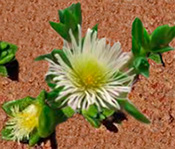 As mentioned, the native tribes of South Africa used kanna spiritually as well. Kanna educator Phoebe McPherson has been studying the plant for its empathogenic properties. Empathogens are substances which increase feelings of love, empathy, and connection. They may help one connect quickly and deeply, helping you feel happier and less stressed in the process. She says kanna may be a safe avenue to explore for relief for those struggling with feelings of disconnection from others, or addiction.
As mentioned, the native tribes of South Africa used kanna spiritually as well. Kanna educator Phoebe McPherson has been studying the plant for its empathogenic properties. Empathogens are substances which increase feelings of love, empathy, and connection. They may help one connect quickly and deeply, helping you feel happier and less stressed in the process. She says kanna may be a safe avenue to explore for relief for those struggling with feelings of disconnection from others, or addiction.
What We Have For You
Evergreen Nutrition has already had tremendous positive feedback on this new addition to our shelves. We offer two products at this time, the original Zembrin from Source Naturals, a 25 mg vegan tablet free of all common allergens including gluten, and Calm & Focus from Now, a blend of Zembrin with GABA. This product is touted for cognitive support but may also be an effective supplement for mood and anxiety issues. Sleep may also benefit from the combination as GABA is required for normal, healthy sleep patterns in humans. Calm & Focus is vegan and gluten free and is located in our Mood section along with Zembrin.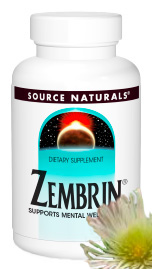
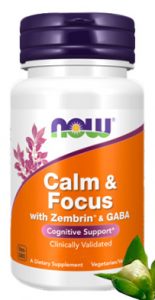
Healthy Brain Development & Focus

Healthy Brain Development & Focus
With September comes back-to-school time, and kids must shift their brains from leisure and relaxation to attention and focus on their classes and studies. Some children have an easier time than others at concentrating on schoolwork, but regardless of their attention spans there are some integral nutritional supplements from which all kids may benefit.Essential Fatty Acids (EFAs)
Essential Fatty Acids (EFAs) are termed this for a reason since they are absolutely necessary for health and cannot be manufactured by the body. Every cell in the body has a requirement for these fats and the list of their functions is too long to list here. The most well-known benefits are as anti-inflammatories and for brain health. Sixty percent of our brains are composed of fat, so the next time your child calls their sibling a fathead, rest assured that it is not an insult!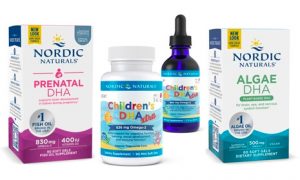 The primary fat in the brain is the omega-3 fatty acid Docosahexaenoic Acid, known as DHA for short, and it is so vital to child brain development that it is a primary constituent of human breast milk. This fatty acid is linked to cerebral development during pregnancy and in the first few months after birth. Breast-fed babies have been shown to have proven IQ advantages over babies fed formula without DHA. As children grow older, they can benefit from DHA contributing to optimal memory function, visual acuity and maintaining a positive mental state. Omega-3 fats have been shown to improve verbal speech, attention, and learning and behavioral skills in children. There is persuasive evidence that children with ADHD have lower levels of omega-3 fatty acids and studies have confirmed that maladjusted children have significantly lower EFA blood levels as well. DHA is found famously in fish oil, and a wide range of supplements is available including a vegan source from algae which is where the fish obtain this fat.
The primary fat in the brain is the omega-3 fatty acid Docosahexaenoic Acid, known as DHA for short, and it is so vital to child brain development that it is a primary constituent of human breast milk. This fatty acid is linked to cerebral development during pregnancy and in the first few months after birth. Breast-fed babies have been shown to have proven IQ advantages over babies fed formula without DHA. As children grow older, they can benefit from DHA contributing to optimal memory function, visual acuity and maintaining a positive mental state. Omega-3 fats have been shown to improve verbal speech, attention, and learning and behavioral skills in children. There is persuasive evidence that children with ADHD have lower levels of omega-3 fatty acids and studies have confirmed that maladjusted children have significantly lower EFA blood levels as well. DHA is found famously in fish oil, and a wide range of supplements is available including a vegan source from algae which is where the fish obtain this fat.
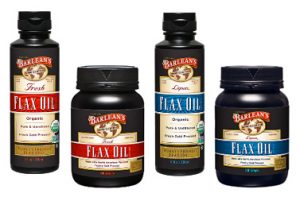 Flax oil is a wonderful source of omega-3 fatty acids also, and although not containing DHA, it does contain a precursor fat which the body may convert into DHA. For optimal levels of DHA, it may be wise to choose a DHA supplement in order to make sure the body is easily supplied.
Flax oil is a wonderful source of omega-3 fatty acids also, and although not containing DHA, it does contain a precursor fat which the body may convert into DHA. For optimal levels of DHA, it may be wise to choose a DHA supplement in order to make sure the body is easily supplied.
Beyond Omega-3
Another brain-supporting nutrient is phosphatidylserine, or PS, a naturally-occurring component of cell membranes. PS has been involved in numerous clinical trials showing improved mental processes such as learning and remembering information and maintaining concentration. Most people have heard of the herb Ginkgo biloba with relation to brain health, but there are also lesser-known botanicals which may benefit learning and concentration/focus in children. An herb from India, bacopa, has been used in that country’s medical tradition for millenia. Bacopa has been clinically proven to support brain function with faster information processing, increased learning rates and reduced test anxiety. Additional studies have shown bacopa to significantly reduce ADHD symptoms in children. Bacopa is traditionally used by students as young as six years old to enhance mental function and thus do better in school. This herb has a long, safe history.Greek Mountain Tea

Greek Mountain Tea
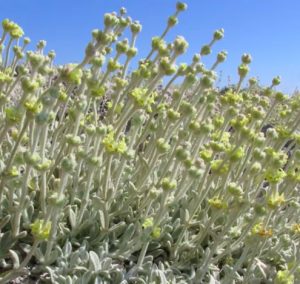 Evergreen Nutrition strives to carry the finest nutritional supplement companies available to retail stores. From time to time one of our partnered companies will launch a new product which warrants our attention. One company we have tremendous respect for is Europharma/Terry Naturally. Founder Terry Lemerond has decades of experience at the helm of some of the most popular and respected companies in our industry. One area in which Terry shines is research. He has been responsible for introducing dozens of unique products to the retail market. Have you ever heard of glucosamine sulfate? The reason you have is due to Terry, who introduced it to the US market in 1992. Recently Mr. Lemerond and Terry Naturally have released a new, previously unavailable product to shelves and we are excited to tell you about it.
Evergreen Nutrition strives to carry the finest nutritional supplement companies available to retail stores. From time to time one of our partnered companies will launch a new product which warrants our attention. One company we have tremendous respect for is Europharma/Terry Naturally. Founder Terry Lemerond has decades of experience at the helm of some of the most popular and respected companies in our industry. One area in which Terry shines is research. He has been responsible for introducing dozens of unique products to the retail market. Have you ever heard of glucosamine sulfate? The reason you have is due to Terry, who introduced it to the US market in 1992. Recently Mr. Lemerond and Terry Naturally have released a new, previously unavailable product to shelves and we are excited to tell you about it.
Greek Mountain Tea
Greek mountain tea (Sideritis scardica) is native to the Mediterranean (Greece and Albania). In that part of the world it has been traditionally consumed as a beverage to increase mental and physical endurance. As its name implies, it grows at altitude, in harsh conditions, and this environment contributes to its novel protective/antioxidant compounds. Research has shown this botanical to provide numerous health benefits ranging from brain support including protection from Alzheimer’s and depression, to liver detoxification, to immune support.Brain Support
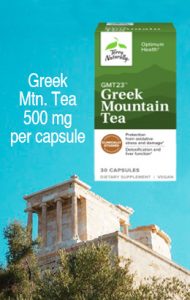 One placebo-controlled, double-blind study tested Greek mountain tea (GMT) against Ginkgo biloba to assess its benefits for cognition. Results showed that the GMT provided significant and stronger benefits than the Ginkgo extract. There were better accuracy and higher scores for processing visual information while under pressure, less anxiety, and improved circulation in the part of the brain involved in learning and working memory. GMT also appears to inhibit the reuptake of key neurotransmitters serotonin, dopamine, and noradrenalin. This has potential for treating symptoms of depression and attention-deficit conditions. One of the most exciting bits of research shows that certain compounds in the plant can decrease amyloid beta formation, one of the major characteristics in Alzheimer’s disease. A study from 2016 confirmed highly enhanced cognitive function in elderly lab animals, implying that GMT “might be a potent, well-tolerated option for treating symptoms of cognitive impairment in the elderly.” GMT also improves blood flow to the brain significantly more than Ginkgo, which may be a reason for its effectiveness on cognition, stress, and alertness.
One placebo-controlled, double-blind study tested Greek mountain tea (GMT) against Ginkgo biloba to assess its benefits for cognition. Results showed that the GMT provided significant and stronger benefits than the Ginkgo extract. There were better accuracy and higher scores for processing visual information while under pressure, less anxiety, and improved circulation in the part of the brain involved in learning and working memory. GMT also appears to inhibit the reuptake of key neurotransmitters serotonin, dopamine, and noradrenalin. This has potential for treating symptoms of depression and attention-deficit conditions. One of the most exciting bits of research shows that certain compounds in the plant can decrease amyloid beta formation, one of the major characteristics in Alzheimer’s disease. A study from 2016 confirmed highly enhanced cognitive function in elderly lab animals, implying that GMT “might be a potent, well-tolerated option for treating symptoms of cognitive impairment in the elderly.” GMT also improves blood flow to the brain significantly more than Ginkgo, which may be a reason for its effectiveness on cognition, stress, and alertness.
Antioxidant/Anti-Inflammatory Benefits
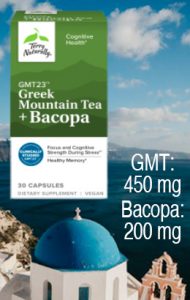 GMT contains powerful polyphenol compounds including novel antioxidants which are partly responsible for its properties. While not deemed a classic adaptogen, GMT seems to promote physical stamina without caffeine or jitters. In its native Greece, it has been traditionally consumed by shepherds in the mountains to support resilience, stamina, and alertness in harsh conditions. It has been used to combat respiratory illnesses and winter colds and flu. Modern research has shown enhanced immune function, anti-inflammatory properties benefitting joint pain, increased bone density, and improved digestive health. Chemical analyses have shown the plant to be a wealth of well-known antioxidants/nutrients including apigenin, quercetin, and caffeic acid. Its antioxidant score is higher than blueberries, a benchmark for that rating. It is a rich source of iron, among other minerals, and has been used to treat anemia, further supporting energy levels.
GMT contains powerful polyphenol compounds including novel antioxidants which are partly responsible for its properties. While not deemed a classic adaptogen, GMT seems to promote physical stamina without caffeine or jitters. In its native Greece, it has been traditionally consumed by shepherds in the mountains to support resilience, stamina, and alertness in harsh conditions. It has been used to combat respiratory illnesses and winter colds and flu. Modern research has shown enhanced immune function, anti-inflammatory properties benefitting joint pain, increased bone density, and improved digestive health. Chemical analyses have shown the plant to be a wealth of well-known antioxidants/nutrients including apigenin, quercetin, and caffeic acid. Its antioxidant score is higher than blueberries, a benchmark for that rating. It is a rich source of iron, among other minerals, and has been used to treat anemia, further supporting energy levels.
Bacopa
Terry has taken another time-honored herb and combined it with GMT for an additional product offering even more brain support. Bacopa monnieri is indigenous to India where it has been used for centuries to strengthen the brain. It is one of the classic herbs in the Indian herbal pharmacopeia and is often used interchangeably with Gotu kola. Bacopa is thought to balance the right and left hemispheres of the brain. In modern times it is routinely given to children with ADD/ADHD rather than pharmaceuticals, with great results and no side-effects. It has shown to improve focus and behavior in children and adolescents with attention deficit conditions. As well, students preparing for exams will use the herb to increase their concentration and memory. Combined with Greek mountain tea, a product is created with unparalleled cognitive benefits. In individuals with mild cognitive impairment (a precursor stage to Alzheimer’s), a combination of the two botanicals was shown to increase beta wave activity in the brain, which is associated with memory and focus. Aside from its brain benefits, bacopa’s rich antioxidant compounds have been shown to help control blood sugar and protect against some of the side effects of type 2 diabetes. In addition, Indian studies have shown it to be an effective reliever of chronic pain.What We Have For You
Evergreen carries both versions of this exciting product, located in our antioxidant and brain sections. These products are vegan, gluten free and non-GMO.Schisandra: Tonic of the Ages

Schisandra: Tonic of the Ages
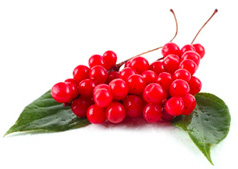 The herb schisandra, also spelled schizandra, has been gaining popularity for some time, mainly as an ingredient in adaptogenic or adrenal formulas. In these it is usually combined with other adaptogens such as rhodiola or ashwagandha. This herb’s properties go far beyond its use here (in which it shines). In this newsletter we will delve into the myriad benefits and properties of this legendary herb.
The herb schisandra, also spelled schizandra, has been gaining popularity for some time, mainly as an ingredient in adaptogenic or adrenal formulas. In these it is usually combined with other adaptogens such as rhodiola or ashwagandha. This herb’s properties go far beyond its use here (in which it shines). In this newsletter we will delve into the myriad benefits and properties of this legendary herb.
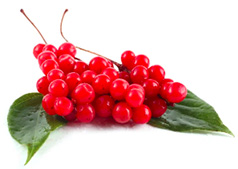 Schisandra chinensis is indigenous to China and Korea, with related species growing around the world in temperate climates. Its Chinese name, Wu Wei Zi, translates to “Fruit of Five Flavors’’ due to the fact that it possesses all five classical tastes (sour, bitter, sweet, salty, spicy/pungent). It is one of the most revered herbs in the Chinese herbal pharmacopeia (Traditional Chinese Medicine, or TCM) and has been used and written about since at least the second century A.D. Traditionally it has been considered to benefit the Kidney, Lung, and Liver meridians/functions. In TCM it is indicated for tuberculosis, asthma, diabetes, insomnia, and low energy, among other conditions. Extensive research has been done on schisandra in Asia and Russia, and a summary of pharmacological actions follows: non-mutagenic, liver protective, antidepressant, DNA stimulation, antioxidant, anti-toxic, anti-fatigue, anti-hyperglycemic, anti-allergenic, anti-stress, resistance stimulation, antitussive/expectorant.
Schisandra chinensis is indigenous to China and Korea, with related species growing around the world in temperate climates. Its Chinese name, Wu Wei Zi, translates to “Fruit of Five Flavors’’ due to the fact that it possesses all five classical tastes (sour, bitter, sweet, salty, spicy/pungent). It is one of the most revered herbs in the Chinese herbal pharmacopeia (Traditional Chinese Medicine, or TCM) and has been used and written about since at least the second century A.D. Traditionally it has been considered to benefit the Kidney, Lung, and Liver meridians/functions. In TCM it is indicated for tuberculosis, asthma, diabetes, insomnia, and low energy, among other conditions. Extensive research has been done on schisandra in Asia and Russia, and a summary of pharmacological actions follows: non-mutagenic, liver protective, antidepressant, DNA stimulation, antioxidant, anti-toxic, anti-fatigue, anti-hyperglycemic, anti-allergenic, anti-stress, resistance stimulation, antitussive/expectorant.
Liver Protection/Support
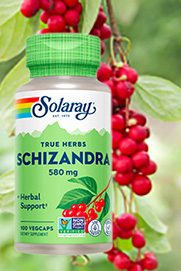 Schisandra has profound liver supportive properties, surpassing even the classically regarded herbal liver champion, milk thistle. In that herb, the lignan compounds are responsible for its liver protection qualities. Schisandra contains a markedly higher percentage of lignan compounds than milk thistle. It may be said to both strengthen and protect the liver. Like milk thistle, it increases levels of glutathione in the liver, thereby protecting the organ from toxins. In addition, schisandra boosts both Phase I liver detoxification and Phase II clearance of activated toxins. It can reduce elevated enzymes in patients with chronic hepatitis, proving just how effective its liver support is. It has been shown in many studies to protect the liver from damage caused by carbon tetrachloride and other highly liver-toxic compounds. Parameters of damage, such as cell necrosis, fatty degeneration, inflammatory cell infiltration, and elevated enzymes were all reduced in schisandra-treated livers.
Schisandra has profound liver supportive properties, surpassing even the classically regarded herbal liver champion, milk thistle. In that herb, the lignan compounds are responsible for its liver protection qualities. Schisandra contains a markedly higher percentage of lignan compounds than milk thistle. It may be said to both strengthen and protect the liver. Like milk thistle, it increases levels of glutathione in the liver, thereby protecting the organ from toxins. In addition, schisandra boosts both Phase I liver detoxification and Phase II clearance of activated toxins. It can reduce elevated enzymes in patients with chronic hepatitis, proving just how effective its liver support is. It has been shown in many studies to protect the liver from damage caused by carbon tetrachloride and other highly liver-toxic compounds. Parameters of damage, such as cell necrosis, fatty degeneration, inflammatory cell infiltration, and elevated enzymes were all reduced in schisandra-treated livers.
Mental/Physical Performance & Adaptogenic
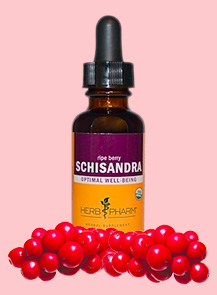 The Russians have been studying schisandra since the 1950s for its role in increasing mental and physical performance, with the conclusion that it can increase human endurance. It can sharpen concentration, improve memory, and increase alertness, all without producing nervousness. Tests in humans showed schisandra to improve activities requiring concentration, fine coordination, sensitivity, and endurance. Tests ranged in activities from threading a needle to running marathons. In addition to increasing physical work capacity, schisandra offers a stress-protective effect against a broad range of harmful factors including heat shock, skin burns, cooling/frostbite, irradiation, and heavy metal toxicity.
The Russians have been studying schisandra since the 1950s for its role in increasing mental and physical performance, with the conclusion that it can increase human endurance. It can sharpen concentration, improve memory, and increase alertness, all without producing nervousness. Tests in humans showed schisandra to improve activities requiring concentration, fine coordination, sensitivity, and endurance. Tests ranged in activities from threading a needle to running marathons. In addition to increasing physical work capacity, schisandra offers a stress-protective effect against a broad range of harmful factors including heat shock, skin burns, cooling/frostbite, irradiation, and heavy metal toxicity.
Lung/Eye Tonic
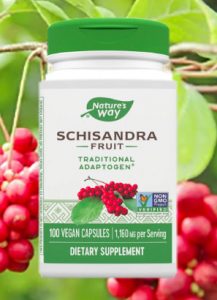 Schisandra has been shown to exert expectorant activity as well as alleviating chronic dry cough and wheezing. It also stimulates respiration. With regard to eye health, it has been shown to improve sensitivity of sight (and hearing), increase the speed of adaptation to the dark, and enlarge the visual field.
Schisandra has been shown to exert expectorant activity as well as alleviating chronic dry cough and wheezing. It also stimulates respiration. With regard to eye health, it has been shown to improve sensitivity of sight (and hearing), increase the speed of adaptation to the dark, and enlarge the visual field.
What We Have For You
 Evergreen Nutrition carries this tonic herb in capsule and liquid form. Herb Pharm has a gluten-free 1 oz. extract of certified organic schisandra berry. Nature’s Way and Solaray both offer encapsulated schisandra products.
Evergreen Nutrition carries this tonic herb in capsule and liquid form. Herb Pharm has a gluten-free 1 oz. extract of certified organic schisandra berry. Nature’s Way and Solaray both offer encapsulated schisandra products.
Inflammation ~ Lessen Its Damage to Your Body

Inflammation ~ Lessen Its Damage to Your Body
“Inflammation” is a term we have all heard for quite some time. It is a very general term and can encompass many facets. Inflammation in the human body occurs at micro and macro levels and affects everything from aging to pain, brain to heart, and many disease conditions may be termed inflammatory conditions. Even in disorders not classically inflammation-induced, inflammation may play a role in their development and progression. Diabetes, for example, may have chronic low-level inflammation as the cause of the insulin resistance responsible for type 2 diabetes. In this newsletter we will look at various types of inflammation and some nutrients and botanicals which may lessen the damage caused.Pain & Inflammation Pathways
Arthritis, bursitis, general joint pain, and more are very common conditions with inflammation and/or a break-down in connective tissue at their root. There are two main pain pathways in the body, COX-2 (Cyclooxygenase), and 5-LOX (5-lipoxygenase). The COX enzyme is infamous for its role in inflammatory processes and is strongly implicated in everything from Alzheimer’s disease to cancer and coronary heart disease (CHD). Unfortunately many of the pharmaceutical drugs which work on this pathway also inhibit the COX-1 enzyme and thus cause undesirable side effects such as stomach bleeding and liver damage. Thankfully there are many herbs which block the bad COX-2 pathway of pain without affecting the COX-1 enzyme. The 5-LOX inflammatory pathway is associated with conditions including allergies, asthma, and digestive diseases such as irritable bowel syndrome (IBS), Crohn’s disease, and celiac disease.Anti-Inflammatory Support:
Curcumin
 Possibly the most well-known single herbal supplement for pain and inflammation, with reams of clinical studies to back up its popularity, is turmeric, sometimes used interchangeably with curcumin, one of its active compounds and a marker for standardized extracts. This herb has many pharmacological effects but as far as inflammation, it is a superstar. It inhibits the COX-2 enzyme as well as preventing breakdown of certain connective tissues. One of the underlying factors behind pain is inflammation, and curcumin has been shown to markedly reduce both. In one clinical trial of 139 with knee osteoarthritis, subjects took a curcumin extract for 28 days and it was found to be as effective at reducing severity of pain as the NSAID drug diclofenac. A study of 44 people with migraines found that 500 mg of curcumin twice a day reduced the frequency, severity, and duration of their migraines. A study of 200 people with IBS found that curcumin gave patients a 25% reduction in abdominal pain as well as an overall improvement in other symptoms.
Possibly the most well-known single herbal supplement for pain and inflammation, with reams of clinical studies to back up its popularity, is turmeric, sometimes used interchangeably with curcumin, one of its active compounds and a marker for standardized extracts. This herb has many pharmacological effects but as far as inflammation, it is a superstar. It inhibits the COX-2 enzyme as well as preventing breakdown of certain connective tissues. One of the underlying factors behind pain is inflammation, and curcumin has been shown to markedly reduce both. In one clinical trial of 139 with knee osteoarthritis, subjects took a curcumin extract for 28 days and it was found to be as effective at reducing severity of pain as the NSAID drug diclofenac. A study of 44 people with migraines found that 500 mg of curcumin twice a day reduced the frequency, severity, and duration of their migraines. A study of 200 people with IBS found that curcumin gave patients a 25% reduction in abdominal pain as well as an overall improvement in other symptoms.
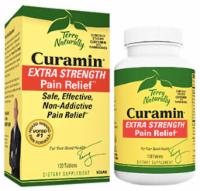 Evergreen stocks more than 20 turmeric/curcumin products, both singly and in formulas. Some favorites are Gaia Herbs’ full-spectrum phyto-cap, Turmeric Supreme, a blend of several organic extracts including supercritical, with a supercritical black pepper extract for better absorption. This product is gluten-free and vegan and is also available in gummy form. Terry Naturally’s flagship product, Curamin, features trademarked BCM-95/Curcugreen curcumin extract, shown to have superior absorption over other extracts. Curamin includes other powerful anti-inflammatories for pain reduction, and we get tremendous positive feedback.
Evergreen stocks more than 20 turmeric/curcumin products, both singly and in formulas. Some favorites are Gaia Herbs’ full-spectrum phyto-cap, Turmeric Supreme, a blend of several organic extracts including supercritical, with a supercritical black pepper extract for better absorption. This product is gluten-free and vegan and is also available in gummy form. Terry Naturally’s flagship product, Curamin, features trademarked BCM-95/Curcugreen curcumin extract, shown to have superior absorption over other extracts. Curamin includes other powerful anti-inflammatories for pain reduction, and we get tremendous positive feedback.
Ginger
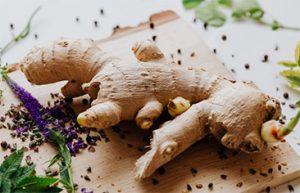 In recent years, this herb’s popularity has been usurped somewhat by its flashier cousin, turmeric. This is unfortunate because ginger is a powerful anti-inflammatory and deserves more attention. Ginger is one of the three most thoroughly researched plants in the world. Gingerol compounds in the herb have been shown to block both the cyclooxygenase and lipoxygenase pathways and the production of inflammatory leukotrienes. One study using rats who had arthritis induced in the knee and paw leading to inflammation had interesting results. One group was given ginger by mouth for 28 days starting the day before the inflammatory injection they received. The rats given ginger oil had less than half the knee and paw inflammation compared to the controls. Danish studies concluded ginger can offer “marked relief” from the most painful of arthritic symptoms. Ginger has also been shown to reduce platelet aggregation (blood-cell stickiness), a risk factor for not only stroke and cardiovascular disease, but cancer. Platelet stickiness is associated with the metastasis (spread) of cancer cells.
In recent years, this herb’s popularity has been usurped somewhat by its flashier cousin, turmeric. This is unfortunate because ginger is a powerful anti-inflammatory and deserves more attention. Ginger is one of the three most thoroughly researched plants in the world. Gingerol compounds in the herb have been shown to block both the cyclooxygenase and lipoxygenase pathways and the production of inflammatory leukotrienes. One study using rats who had arthritis induced in the knee and paw leading to inflammation had interesting results. One group was given ginger by mouth for 28 days starting the day before the inflammatory injection they received. The rats given ginger oil had less than half the knee and paw inflammation compared to the controls. Danish studies concluded ginger can offer “marked relief” from the most painful of arthritic symptoms. Ginger has also been shown to reduce platelet aggregation (blood-cell stickiness), a risk factor for not only stroke and cardiovascular disease, but cancer. Platelet stickiness is associated with the metastasis (spread) of cancer cells.
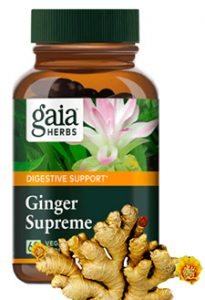 Evergreen has ginger products available in liquids, capsules, and chewable tablets. Our own label offers Ultimate Ginger Complex, a supercritical extract blended with rosemary extract for additional antioxidant activity. This product is gluten-free, vegan, and non-GMO. Natural Factors has a convenient chewable tablet featuring an organic ginger extract sweetened with only stevia and xylitol. This product is gluten-free, vegan, non-GMO, and free of all common allergens. Gaia Herbs’ Ginger Supreme is organic, vegan, and gluten-free and includes added turmeric extract for extra anti-inflammatory power.
Evergreen has ginger products available in liquids, capsules, and chewable tablets. Our own label offers Ultimate Ginger Complex, a supercritical extract blended with rosemary extract for additional antioxidant activity. This product is gluten-free, vegan, and non-GMO. Natural Factors has a convenient chewable tablet featuring an organic ginger extract sweetened with only stevia and xylitol. This product is gluten-free, vegan, non-GMO, and free of all common allergens. Gaia Herbs’ Ginger Supreme is organic, vegan, and gluten-free and includes added turmeric extract for extra anti-inflammatory power.
Boswellia
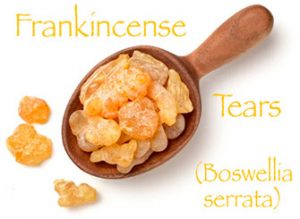 Boswellia serrata (also known as frankincense) is rapidly becoming as well-known as turmeric, and with good reason. This ancient herb inhibits the 5-LOX enzyme pathway and thus is highly anti-inflammatory. 5-LOX inflammation may lead to tumor formation and inflammatory digestive, respiratory, and cardiovascular conditions. Boswellia has been shown to be very effective through its 5-LOX inhibition to reduce the joint pain associated with arthritis. In a clinical study of osteoarthritis, a combination of boswellia and curcumin was shown to be superior to the prescription arthritis drug, Celebrex.
Boswellia serrata (also known as frankincense) is rapidly becoming as well-known as turmeric, and with good reason. This ancient herb inhibits the 5-LOX enzyme pathway and thus is highly anti-inflammatory. 5-LOX inflammation may lead to tumor formation and inflammatory digestive, respiratory, and cardiovascular conditions. Boswellia has been shown to be very effective through its 5-LOX inhibition to reduce the joint pain associated with arthritis. In a clinical study of osteoarthritis, a combination of boswellia and curcumin was shown to be superior to the prescription arthritis drug, Celebrex.
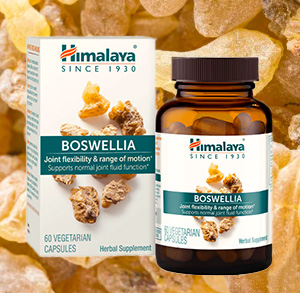 Evergreen has a selection of boswellia products. Himalaya has their Boswellia Extract, gluten-free and vegan. Ayush Herbs offers Boswelya Plus, a blend of boswellia, ginger, and turmeric. This caplet is free from all common allergens. From Solaray’s Ayurvedic Herbs collection comes their boswellia extract, a vegan capsule product also containing anti-inflammatory devil’s claw. And, as mentioned above, Terry Naturally’s Curamin combines curcumin with a clinically-studied boswellia extract. This product also comes in an extra-strength version. Turmeric Strength for Joint by MegaFood combines curcumin with boswellia, ginger, and devil’s claw in a gluten-free, vegan tablet.
Evergreen has a selection of boswellia products. Himalaya has their Boswellia Extract, gluten-free and vegan. Ayush Herbs offers Boswelya Plus, a blend of boswellia, ginger, and turmeric. This caplet is free from all common allergens. From Solaray’s Ayurvedic Herbs collection comes their boswellia extract, a vegan capsule product also containing anti-inflammatory devil’s claw. And, as mentioned above, Terry Naturally’s Curamin combines curcumin with a clinically-studied boswellia extract. This product also comes in an extra-strength version. Turmeric Strength for Joint by MegaFood combines curcumin with boswellia, ginger, and devil’s claw in a gluten-free, vegan tablet.
Factors for Inflammation
One major underlying cause of chronic inflammation is oxidative stress. What causes oxidative stress? Our environment is one culprit, with factors such as pollution of air and water, exposure to pesticides, and overexposure to the sun. Unbalanced lifestyles contribute factors such as too little sleep, too much work or exercise, and stress in general. Exposure to toxic chemicals in personal care products and tobacco smoke is a major cause of oxidative stress. Perhaps the biggest factor contributing to oxidative stress is the Standard American Diet (SAD). Rife with ultra-processed foods, inflammatory omega-6 oils, and unwanted hormones, the SAD ramps up continuous inflammation in the body. One has more control over one’s diet than other external factors, and simply swapping out sugar and white flour for healthier options will do wonders. Avoid oils such as corn, canola, soy, and safflower, and introduce healthy anti-inflammatory high omega-3 oils like flax, walnut, hemp, and fish. Antioxidants, of course, will help to support anti-inflammatory processes. Eat your brightly-colored fruits and vegetables as they are filled with anti-inflammatory (and anti-cancer) compounds.Berberine ~ Diverse Applications for Your Health
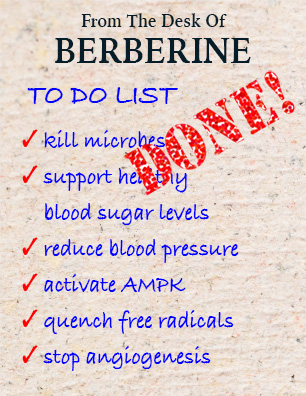
Berberine ~ Diverse Applications for Your Health
Becoming very popular here at Evergreen Nutrition and elsewhere in the natural products market is the supplement berberine. This substance has many diverse applications for health. It has been used in some form for ages in Traditional Chinese Medicine and now has been studied extensively in the West. We will look at this remarkable compound and its healing properties in this newsletter.
What Is It?
Berberine is an alkaloid chemical found in numerous plants, including goldenseal, Oregon grape, barberry, and goldthread (coptis). Its yellow pigment gives goldenseal root its instantly recognizable identification. It is also very bitter, contributing to some of its beneficial effects. Berberine has a broad range of effects, from highly antimicrobial activity against some really nasty bugs, to anti-inflammatory properties, to anti-cancer activity. As well, it has been studied extensively for a role in alleviating metabolic syndrome and diabetes.
Antimicrobial Activity
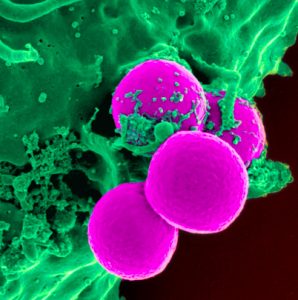
Berberine has been shown to possess potent antimicrobial activity. It is anti-parasitic, amoebicidal, kills Giardia (notoriously difficult to eradicate), and is specific for parasitic infections. Its antibacterial activity may include Staphylococcus aureus, Escherica coli, and Pseudomonas aeruginosa. Berberine seems to have an affinity for the digestive tract.
Healthy Blood Sugar Levels

Berberine supports healthy blood sugar levels through several mechanisms. It helps slow down the breakdown of carbohydrates and reduces the amount of glucose produced by the liver. It also improves the body’s use of sugars by promoting normal insulin sensitivity and enhanced glucose uptake by cells for conversion to energy. In a three-month clinical study, berberine lowered the amount of blood sugar attached to hemoglobin from 8.1 percent to 7.3 percent, and lowered triglycerides, along with fasting and postprandial glucose levels. It also reduced fasting plasma insulin by 28 percent, and the insulin resistance index by 44 percent.
Weight Loss/Metabolic Disorder/Cholesterol

Berberine’s effectiveness at balancing blood sugar levels also lends itself to supporting other facets of metabolic health. It has been shown to be a vasodilator, opening up blood vessels and helping to reduce blood pressure. It has also shown to have a positive effect on weight loss through its activation of adenosine monophosphate-activated protein kinase (AMPK), encouraging the body to burn calories rather than storing them as fat. In one study, obese subjects taking 500 mg of berberine 3 times a day for 12 weeks lost an average of 5 lbs. and also saw a significant decrease in their triglyceride and cholesterol levels.
Antioxidant/Anti-Cancer

Berberine has potent antioxidant and anti-inflammatory activity. These properties may have an anti-cancer effect. Numerous Chinese studies have shown that berberine fights cancer via multiple mechanisms, including induction of autophagy and apoptosis (manners in which cancerous cells are destroyed). In addition, it stops angiogenesis, the growth of new blood vessels supplying cancers. Research and human trials have shown it to help stop the recurrence of some advanced cancers, including colorectal, breast, gastrointestinal, liver, and lung.
Evergreen Nutrition Can Help
Evergreen stocks several berberine products. From Natural Factors comes WellBetX Berberine, a vegan, gluten free capsule described by the company as playing an important role in glucose metabolism and cardiovascular health. Enzymedica’s Berberine is sustainably sourced from barberry and is enteric-coated for improved absorption. It is vegan and gluten free as well. Thorne offers Berberine-500, support for maintaining already healthy cholesterol and blood sugar levels, promoting GI microbial balance, and supporting healthy metabolism.
Ashwagandha Revisited ~ New Research on an Ancient Plant
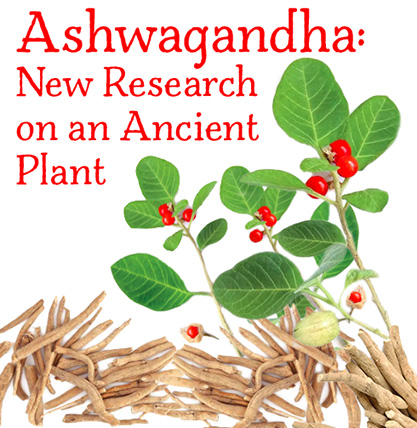
Ashwagandha Revisited ~ New Research on an Ancient Plant
Brain Effects
Anxiety/Depression
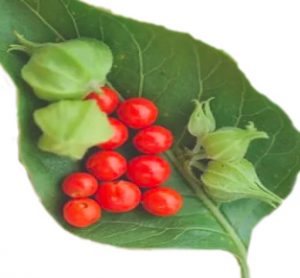
Brain Cell Protection

Other Effects
PQQ: Mitochondrial Support For Your Body

PQQ: Mitochondrial Support For Your Body
Mitochondrial Support
Brain Support

Heart Support

Bone Support
 PQQ’s effects on controlling inflammation and reducing oxidative stress have been shown to benefit bones. Aging cells give off inflammatory molecules which weaken the body. Among other damage they do, these molecules may contribute to weaker, fracture-prone bones. PQQ can promote formation and prevent degradation of bones. Animal studies have shown the ability of PQQ to strengthen and thicken healthy bone, prevent bone loss due to low levels of estrogen and testosterone, stimulate new bone formation, slow the development of osteoclasts, and promote formation of bone-building osteoblasts.
PQQ’s effects on controlling inflammation and reducing oxidative stress have been shown to benefit bones. Aging cells give off inflammatory molecules which weaken the body. Among other damage they do, these molecules may contribute to weaker, fracture-prone bones. PQQ can promote formation and prevent degradation of bones. Animal studies have shown the ability of PQQ to strengthen and thicken healthy bone, prevent bone loss due to low levels of estrogen and testosterone, stimulate new bone formation, slow the development of osteoclasts, and promote formation of bone-building osteoblasts.Longevity

Vision Support: Nutrients for Your Eyes

Vision Support: Nutrients for Your Eyes
There are many nutrients (vitamins, minerals, antioxidants), phytochemicals, and herbs that benefit the eyes. Most are well known by this time, such as lutein, for example. However, there are many nutrients for vision support which are not as commonly known but which nonetheless are important. In this newsletter we will look at some lesser-known substances for eye support.Fatty Acids (LNA/DHA)
Alpha-linolenic acid (LNA) is the precursor fatty acid to DHA (docosahexaenoic acid). The human body converts LNA to DHA but this conversion is not always reliable due to certain factors, such as impaired liver function, aging, and more. The retina of the eye relies on these fatty acids, particularly DHA, for proper function. They concentrate in the cell membranes of the retina and may be involved in the conversion of light entering the eye into nerve impulses. Tests with both animal and human subjects have found DHA supplementation to significantly improve visual acuity. This vital fatty acid is supplied by fish oil and also certain algae (vegan source). Studies have shown that after four weeks of LNA deficiency it may take up to ten times more light before the retina responds to it. This occurs as a result of insufficient LNA being available for conversion to DHA. The Age-Related Eye Diseases Study (AREDS) looked at over 4000 people between the ages of sixty to eighty years old and found that dietary omega three acid intake from fish and/or supplements was associated with a thirty-nine percent decrease in neovascular age-related macular degeneration (AMD), and that DHA supplementation was associated with a forty-six percent decrease. Also, increased consumption of the inflammatory omega-6 fatty acid arachidonic acid was associated with a fifty-four percent increased prevalence of AMD. This unhealthy fatty acid is found in oils such as corn, cottonseed, canola, and others used in overly refined, processed, packaged foods.
Tests with both animal and human subjects have found DHA supplementation to significantly improve visual acuity. This vital fatty acid is supplied by fish oil and also certain algae (vegan source). Studies have shown that after four weeks of LNA deficiency it may take up to ten times more light before the retina responds to it. This occurs as a result of insufficient LNA being available for conversion to DHA. The Age-Related Eye Diseases Study (AREDS) looked at over 4000 people between the ages of sixty to eighty years old and found that dietary omega three acid intake from fish and/or supplements was associated with a thirty-nine percent decrease in neovascular age-related macular degeneration (AMD), and that DHA supplementation was associated with a forty-six percent decrease. Also, increased consumption of the inflammatory omega-6 fatty acid arachidonic acid was associated with a fifty-four percent increased prevalence of AMD. This unhealthy fatty acid is found in oils such as corn, cottonseed, canola, and others used in overly refined, processed, packaged foods.
Flavonoids
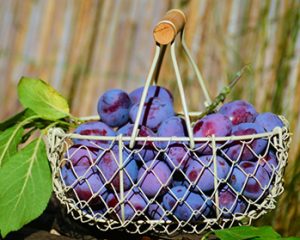 Some of the flavonoids supporting vision include the anthocyanins, proanthocyanidins, and oligo procyanidins (OPCs). These are all very closely related compounds and occur in red-blue berries and fruits such as blueberries, bilberries, hawthorn berries, cherries, grapes, and grape seeds. They are also found in substances as varied as green tea and cacao. These compounds offer multiple, powerful benefits to the eye. They can improve vision in different aspects and also protect against conditions such as AMD and glaucoma via their antioxidant activity, collagen stabilization, and vascular wall stabilization. We will look at some of these in depth.
Some of the flavonoids supporting vision include the anthocyanins, proanthocyanidins, and oligo procyanidins (OPCs). These are all very closely related compounds and occur in red-blue berries and fruits such as blueberries, bilberries, hawthorn berries, cherries, grapes, and grape seeds. They are also found in substances as varied as green tea and cacao. These compounds offer multiple, powerful benefits to the eye. They can improve vision in different aspects and also protect against conditions such as AMD and glaucoma via their antioxidant activity, collagen stabilization, and vascular wall stabilization. We will look at some of these in depth.
Bilberry
Closely related to blueberries, this berry is famously known for supporting night vision, and was consumed by RAF pilots in WWII to assist with night-time bombing runs. Bilberry does more than just help to improve night vision. The anthocyanidin compounds in the dark purple berry prevent free radical damage and cross-link with collagen fibers to form a more stable collagen matrix. These actions may reduce near-sightedness. The flavonoids also reduce the accumulation of sorbitol in the lens which is a major risk factor for cataracts. In one human study, bilberry extract plus vitamin E stopped progression of cataract formation in 97% of 50 patients with cataracts. Bilberry has been shown as well to maintain the ability to see after exposure to glare.Grape Seed Extract
The seeds of grapes contain compounds called oligo procyanidins (OPC), and are powerful antioxidants. Like their cousins, anthocyanins from dark berries, these compounds help maintain normal vision. They have been shown in studies to relieve eye strain and help with adaptation after glare exposure, as well as improving/maintaining night vision and vision in dim lighting. OPCs stabilize the collagen network and strengthen blood vessel walls for improved circulation.Astaxanthin
This “king of the carotenoids” has so many applications for health support that one newsletter could not hope to cover them. Due to its powerful antioxidant activity astaxanthin has been shown to have profound protective qualities for the eye. Cataracts and AMD appear to be the result of a lifetime of light-induced oxidation. They are commonly related to aging. It is known that the consumption of certain carotenoids, specifically lutein and zeaxanthin, is related to a reduced risk for both of these conditions. These two carotenoids are preferentially deposited in the eye to protect from light-induced damage. Astaxanthin, while not normally found in the eye, has been shown to protect the eye from light-induced damage, photoreceptor cell damage, damage to nerve bundles, nerve damage, and inflammatory damage.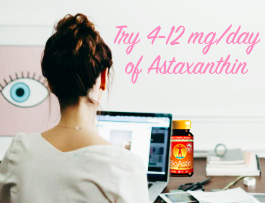 In addition, multiple studies have found astaxanthin to help ward off eye fatigue in people using computer screens for extended periods. One study in Japan showed that people logging a lot of computer time taking 5 mg per day for four weeks reported a 46 percent reduction in eyestrain and an increase in the ability of the lens to focus (resulting in less fatigue). Other studies using from 4-12 mg per day showed similar improvements to eye fatigue, as well as less eye soreness, less dryness, and less blurred vision. (To learn more about astaxanthin see our previous newsletter.)
In addition, multiple studies have found astaxanthin to help ward off eye fatigue in people using computer screens for extended periods. One study in Japan showed that people logging a lot of computer time taking 5 mg per day for four weeks reported a 46 percent reduction in eyestrain and an increase in the ability of the lens to focus (resulting in less fatigue). Other studies using from 4-12 mg per day showed similar improvements to eye fatigue, as well as less eye soreness, less dryness, and less blurred vision. (To learn more about astaxanthin see our previous newsletter.)
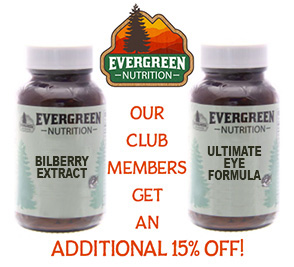 Evergreen Nutrition’s vision-support section has multiple options for the supplements discussed here. Our own label offers Bilberry Extract, a high potency extract in a vegan capsule. Also from our own label comes Ultimate Eye Formula, combining a bilberry/blueberry extract with lutein for extra support. Gaia Herbs offers their Healthy Vision, a blend of bilberry and grape seed extracts with astaxanthin. Irwin Naturals’ Vision Sharp is an inspired blend of fish oil (supplying omega-3 fatty acid DHA), bilberry extract, and lutein/zeaxanthin. BioAstin’s Hawaiian Astaxanthin is a 4 mg softgel in a base of safflower oil for increased absorption. Solgar has their high potency 10 mg Astaxanthin.
Evergreen Nutrition’s vision-support section has multiple options for the supplements discussed here. Our own label offers Bilberry Extract, a high potency extract in a vegan capsule. Also from our own label comes Ultimate Eye Formula, combining a bilberry/blueberry extract with lutein for extra support. Gaia Herbs offers their Healthy Vision, a blend of bilberry and grape seed extracts with astaxanthin. Irwin Naturals’ Vision Sharp is an inspired blend of fish oil (supplying omega-3 fatty acid DHA), bilberry extract, and lutein/zeaxanthin. BioAstin’s Hawaiian Astaxanthin is a 4 mg softgel in a base of safflower oil for increased absorption. Solgar has their high potency 10 mg Astaxanthin.
